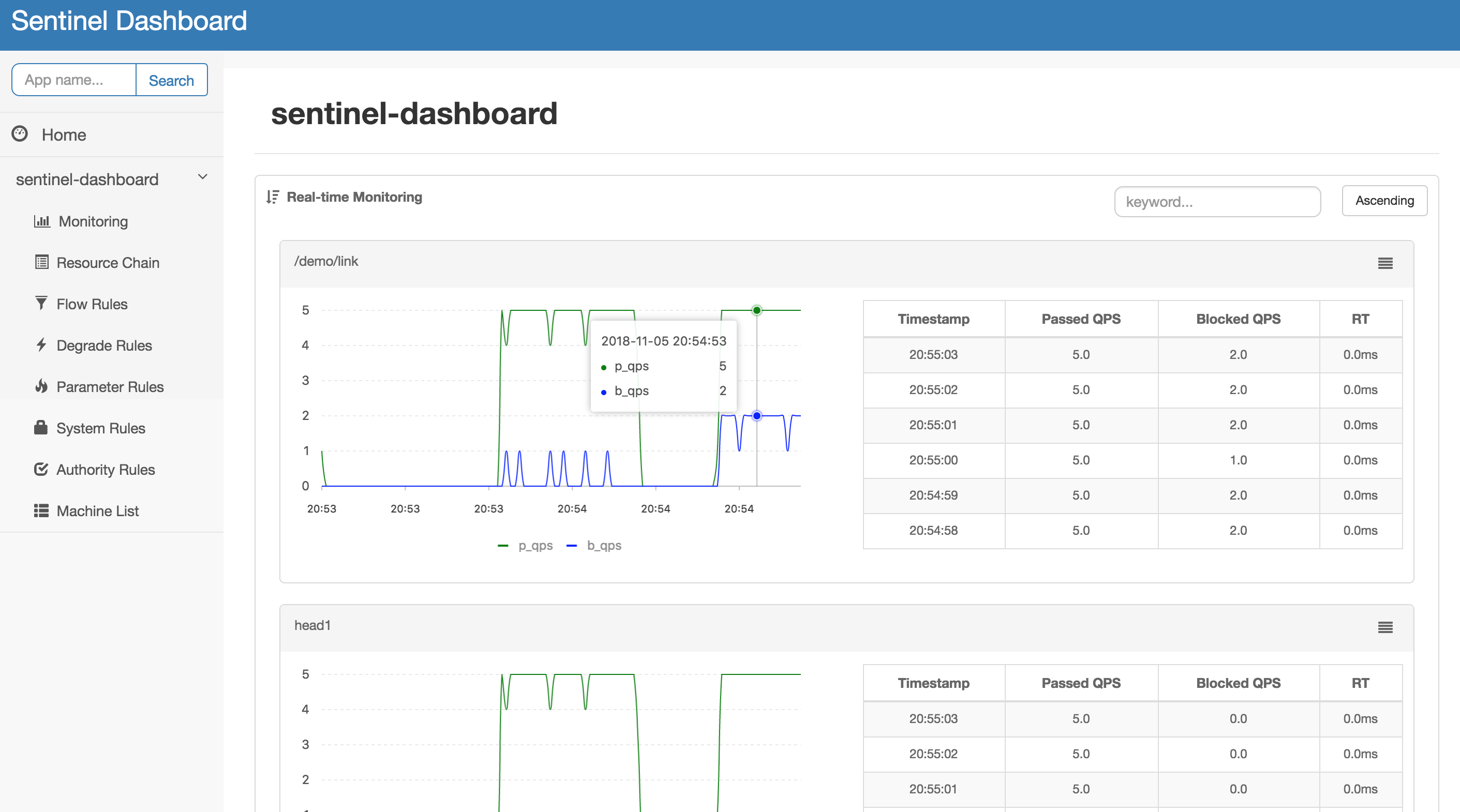-
Notifications
You must be signed in to change notification settings - Fork 8.1k
Dashboard
Sentinel provides a simple stand-alone dashboard, on which you can monitor your applications, and configure the rules in real time. It includes the following features:
- Machine discovery
- Resource monitoring for single machine or clusters with less than 500 nodes
- Rule management

You can download the latest Sentinel Dashboard jar from the release page.
You can also build from code:
- Download Dashboard module;
- Package it to fat jar with the following command:
mvn clean package;
Use the following command to start the dashboard:
java -Dserver.port=8080 -Dcsp.sentinel.dashboard.server=localhost:8080 -Dproject.name=sentinel-dashboard -jar sentinel-dashboard.jar-
-Dserver.port=8080is the HTTP port of the Sentinel Dashboard.
Perform the following 2 steps to connect your application to the dashboard.
If your project is a Maven project, add the following dependency in your pom.xml. Otherwise, please download it from Maven.
<dependency>
<groupId>com.alibaba.csp</groupId>
<artifactId>sentinel-transport-simple-http</artifactId>
<version>x.y.z</version>
</dependency>Add dashboard IP address when starting the application: -Dcsp.sentinel.dashboard.server=consoleIp:port.
In addition to JVM parameters, you can also do this by configuring property files. For more details, see Configuration.
After the above steps are completed, if any resource is called, your application will start to send its heartbeat to the dashboard. You can check the following information on the dashboard:
Machine List page:

Note: Resources displayed in "Resource Chain" are stored in memory.

Note: "Monitoring" will only record metrics in 5 minutes. If you need to persist these data, please refer to Metrics.

If any information is missed please check your configuration and troubleshoot via record.log and metricStat.log.pid<Pid No>.<Date>. For details please refer to logs.
Sentinel Dashboard provides rules management as well.
You can query rules on the dashboard via HTTP commands exposed by client site. For details please refer to HTTP API for rules.
Rule page in Sentinel Dashboard:

You can also change rules on the dashboard in real time via HTTP command for rules.
Note: All these rules are stored in memory by default.
We recommend you to use Dynamic Rule Configuration to customize your own rule configuration logic.
-
文档
-
Documents
- Read Me
- Introduction
- How to Use
- How it Works
- Flow Control
- Parameter Flow Control
- Cluster Flow Control
- API Gateway Flow Control
- Circuit Breaking
- Adaptive System Protection
- Metrics
- General Configuration
- Dynamic Rule Configuration
- Dashboard
- Integrations with open-source frameworks
- Contribution Guideline